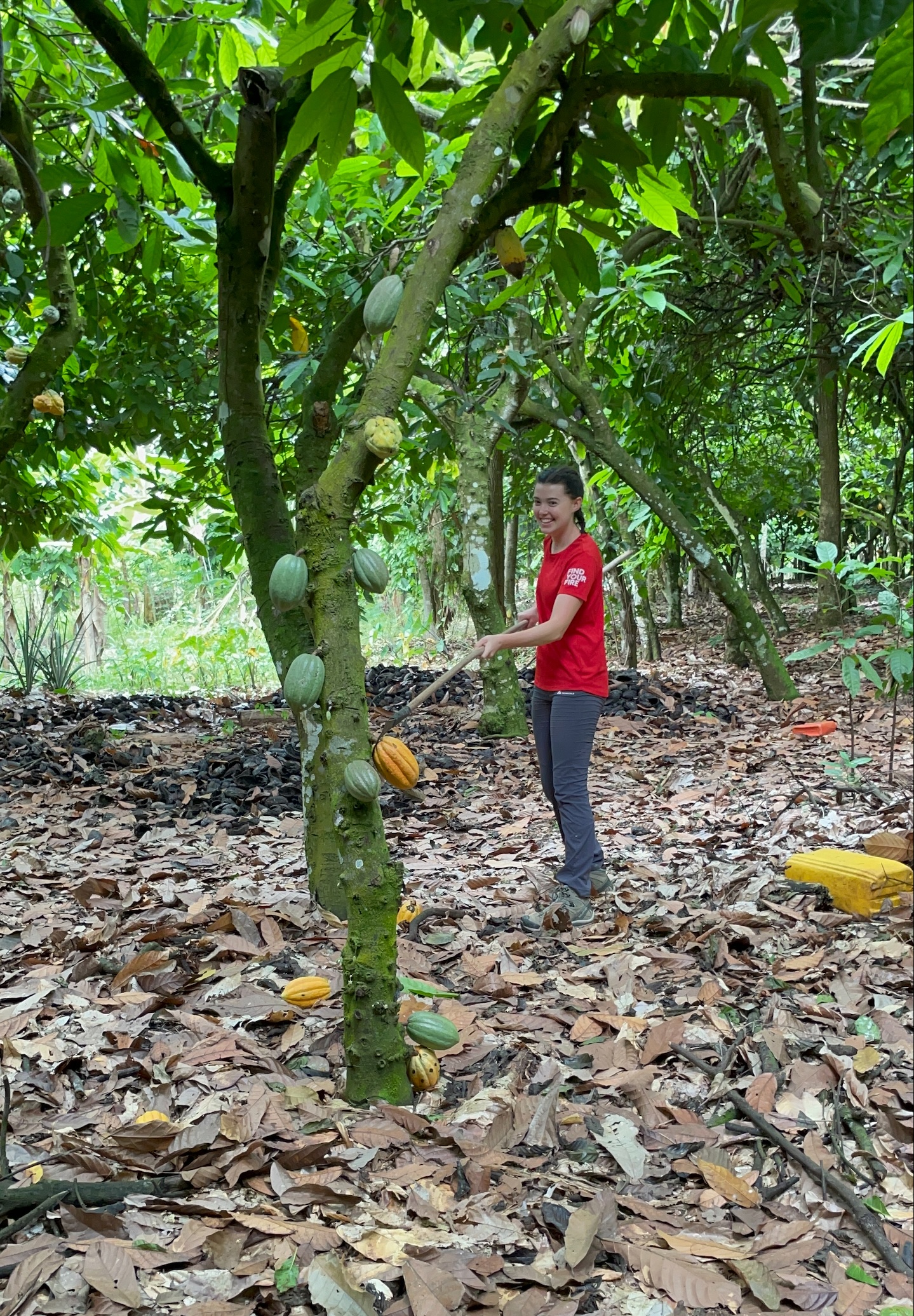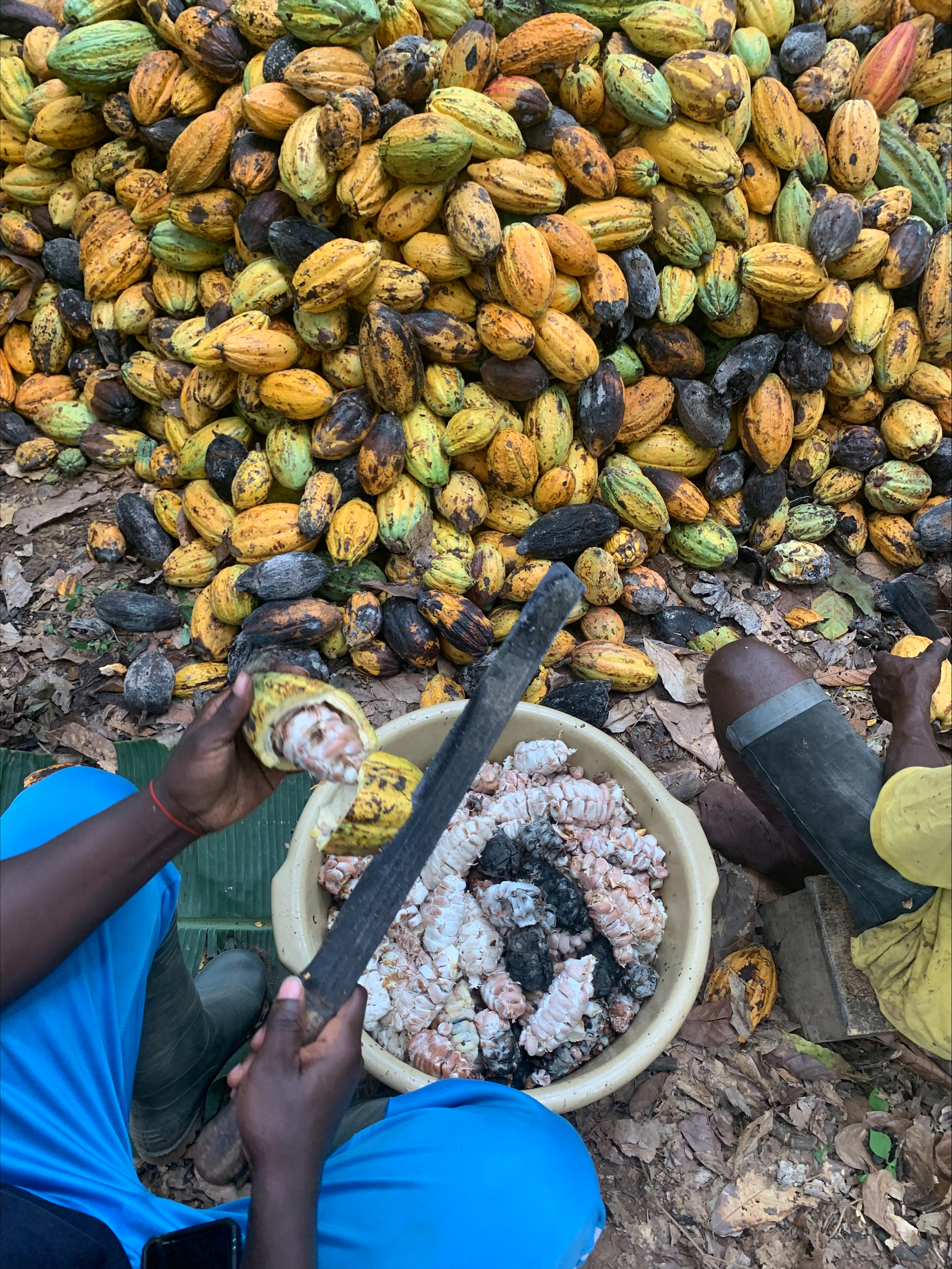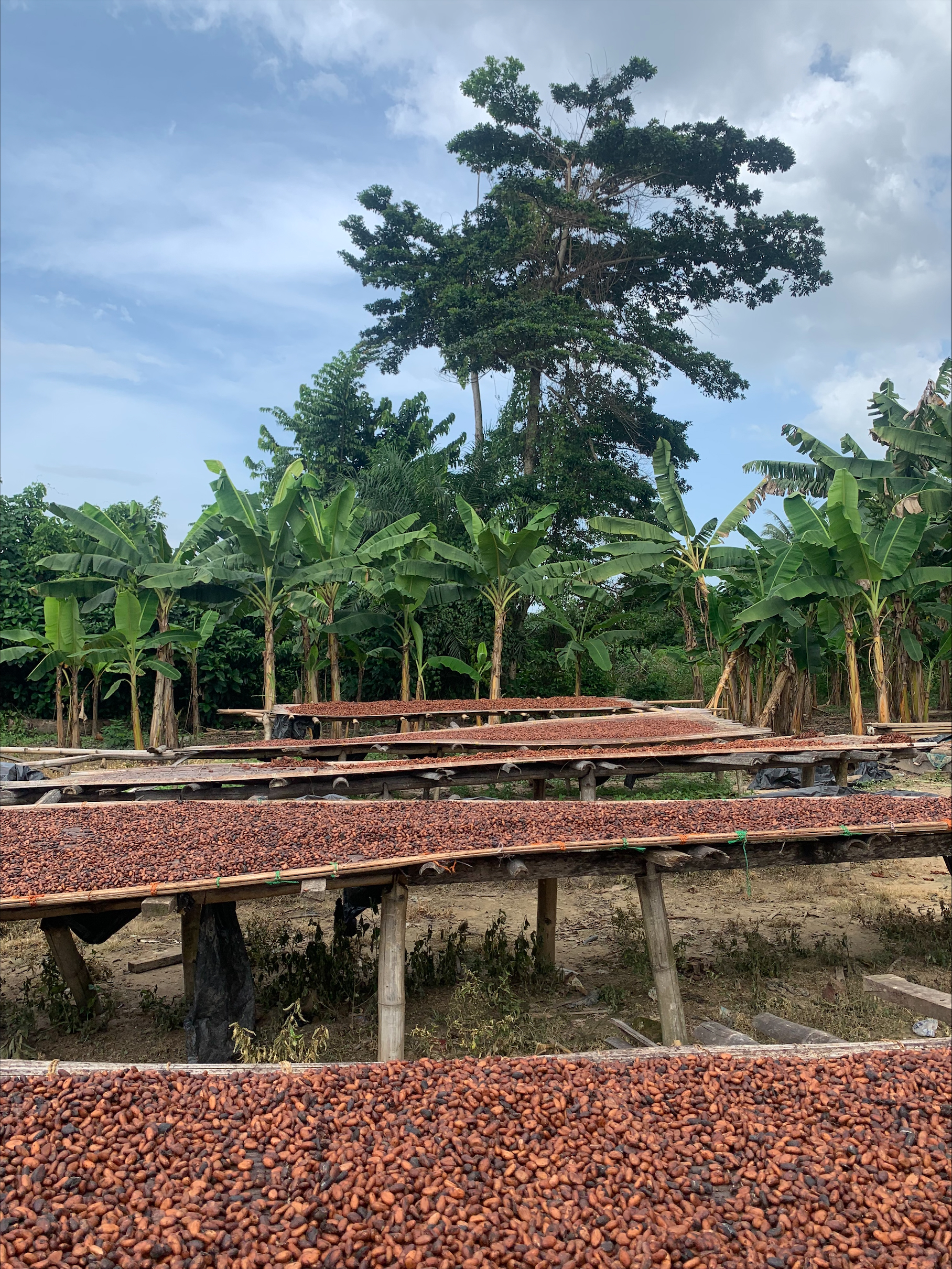Biodiversity and climate adaptation in Ghanaian cocoa plantations: Interview with Phoebe Reid
Ph oebe Reid is currently a Master's student at New College. However, she is currently far from the streets of Oxford... we spoke to Phoebe from Ghana where she is undertaking research in its cocoa plantations.
oebe Reid is currently a Master's student at New College. However, she is currently far from the streets of Oxford... we spoke to Phoebe from Ghana where she is undertaking research in its cocoa plantations.
Where are you currently?
I am undertaking fieldwork in the Ashanti region of Ghana for three weeks. I am collecting the primary data for my Masters which I will then analyse and write up into a thesis during the coming year.
Tell me about your master's thesis.
My Master's thesis focuses on biodiversity, climate adaptation and productivity in agroecosystems, in particular cocoa plantations in Ghana. Agricultural expansion is a key driver of deforestation in the tropics, with crop productivity and biodiversity conservation thought to be incompatible. However, agroforestry allows the preservation of biodiversity and ecosystem services, while maintaining livlihoods through crop yield. Bats provide important ecosystem services through pest suppression with an economic value to cocoa farms, however further research is required to understand the impact of shade tree traits on bat diversity. Given that West Africa produces 70% of cocoa globally and its climatic suitability is predicted to decrease, understanding the ability of agroforests to buffer climate extremes and boost biodiversity is also crucial for the long-term sustainability of cocoa production in the region and the livlihoods of smallholder farmers. Specifically, this study will investigate how shade tree cover and height affect bat diversity and relative abundance and microclimate in a major region of cocoa production in Ghana. This investigation aims to contribute to the evidence base on shade tree diversity to improve the flow of NCPs through climate adaptation potential and pest control.
What does your research look like day to day?
Day to day: We leave the homestay in Konongo at 7am and drive to a community where we are sampling. Breakfast is picked up on route – normally rice, beans and egg. Often there are around six farms per community which have been selected for fieldwork, so we visit each of these in turn and collect our data. For my study, I walk along three transects per farm and collect data on tree diversity and microclimate. I also deploy an audiorecorder which records bat echolocation, which we collect after two weeks to analyse the bat diversity per farm. The fieldwork normally ends around 3pm when we drive back to the homestay and I write up my data. For dinner we normally go to the fufu (cassava) place which is really delicious. I then relax in the evening and get an early night before another long day of fieldwork!
What are the benefits and challenges of researching in another continent?
Benefits: Exploring a new culture! We are working with four Ghanaian research assistants from the local university who are not only teaching us about the food, language and culture of Ghana but also about the local traditions and uses of the trees in Ghana, for example for medicine, which I’ve found very interesting.
Challenges: The heat! Its often around 40 degrees here, when combined with 8 hour long days in the field, makes you rather sweaty and fatigued.
How has the college supported you in this project?
The college has very kindly awarded me the undergraduate study grant of £300 which has gone towards the cost of the trip.


